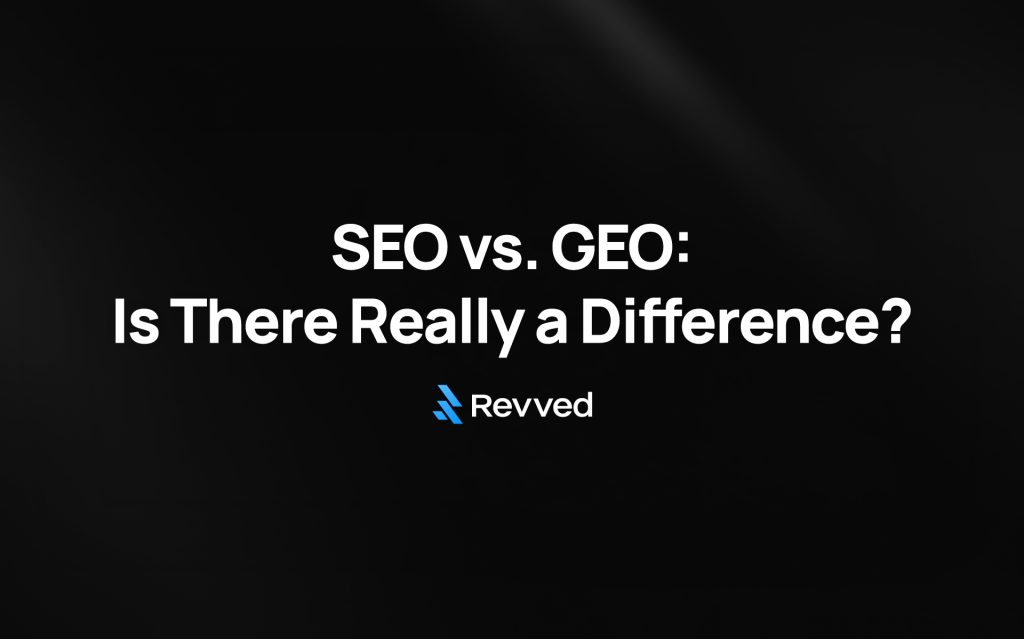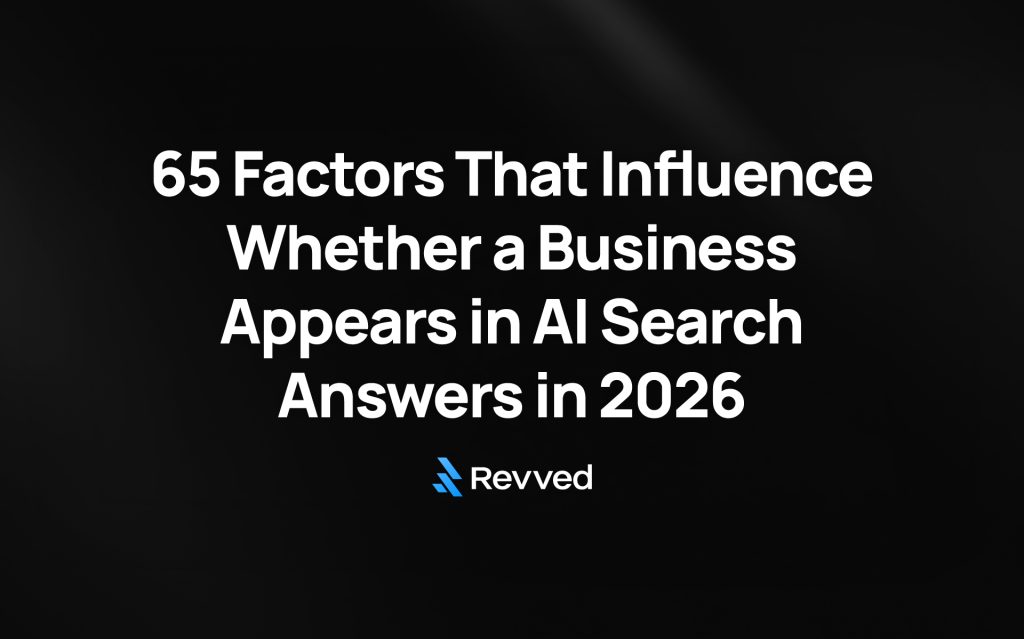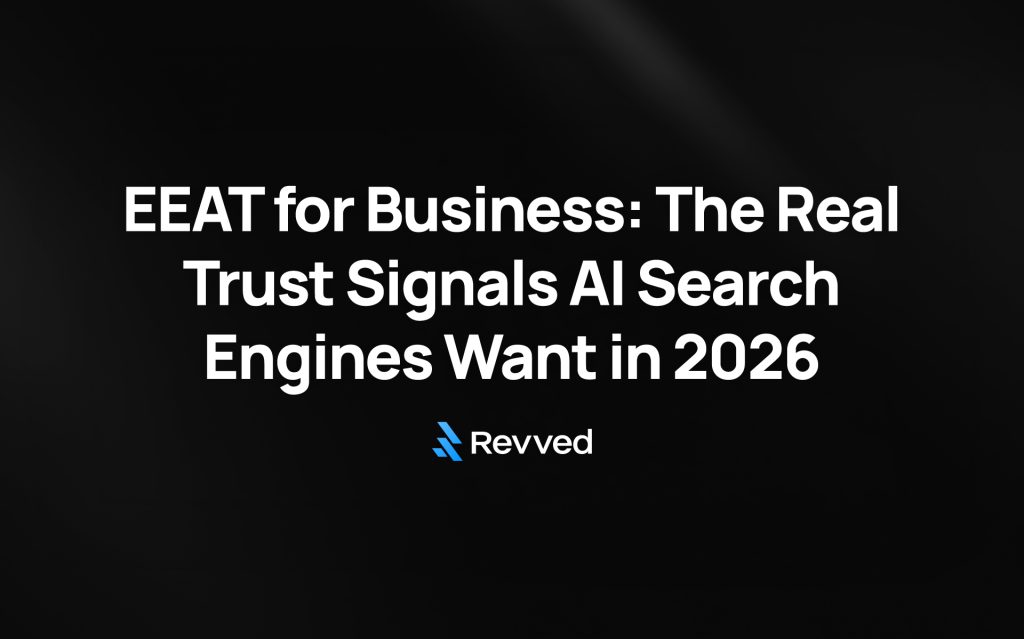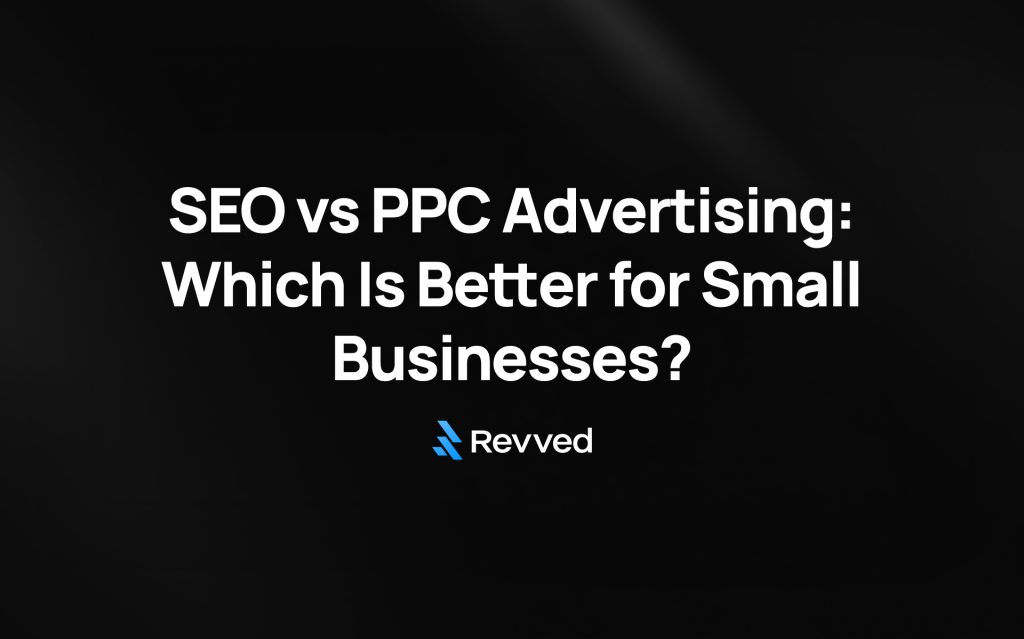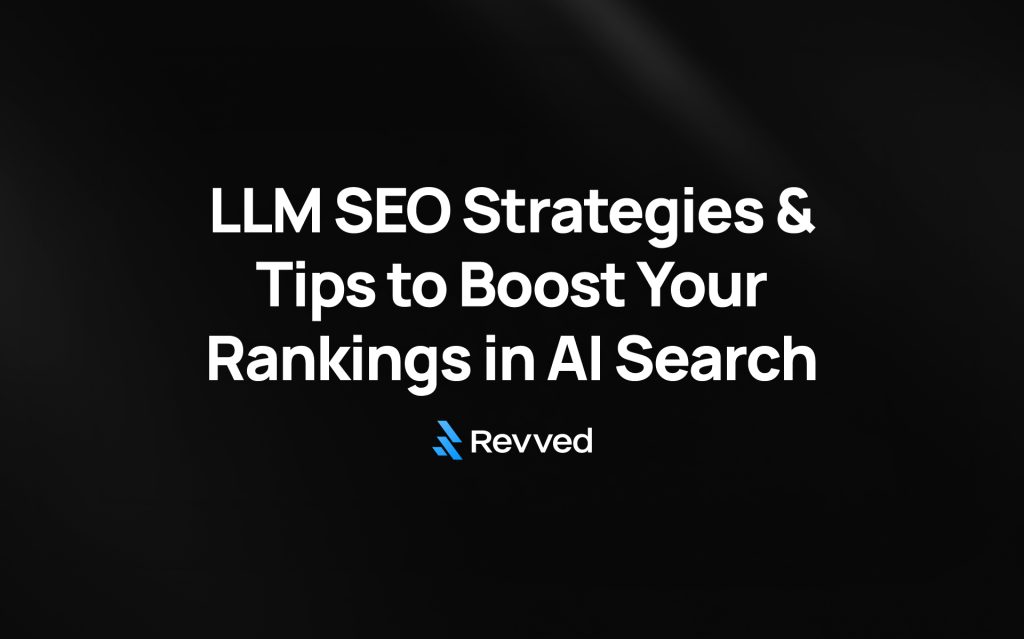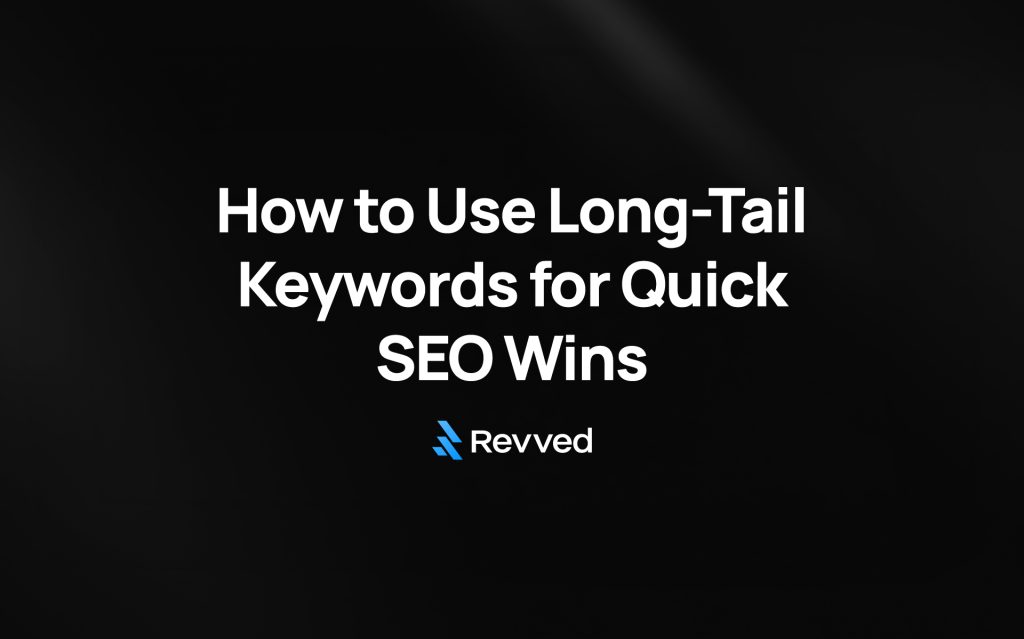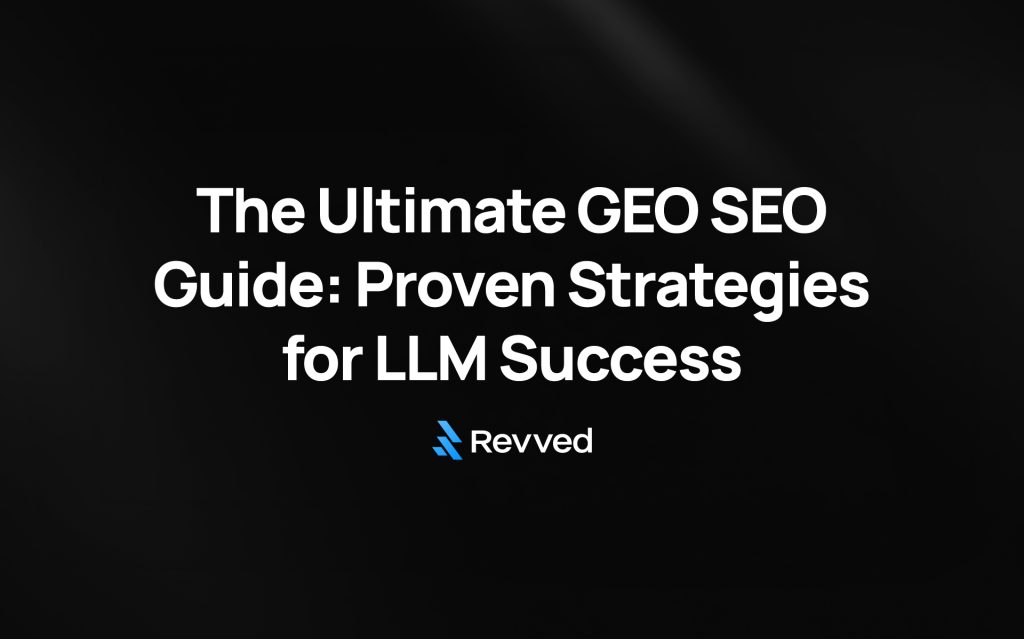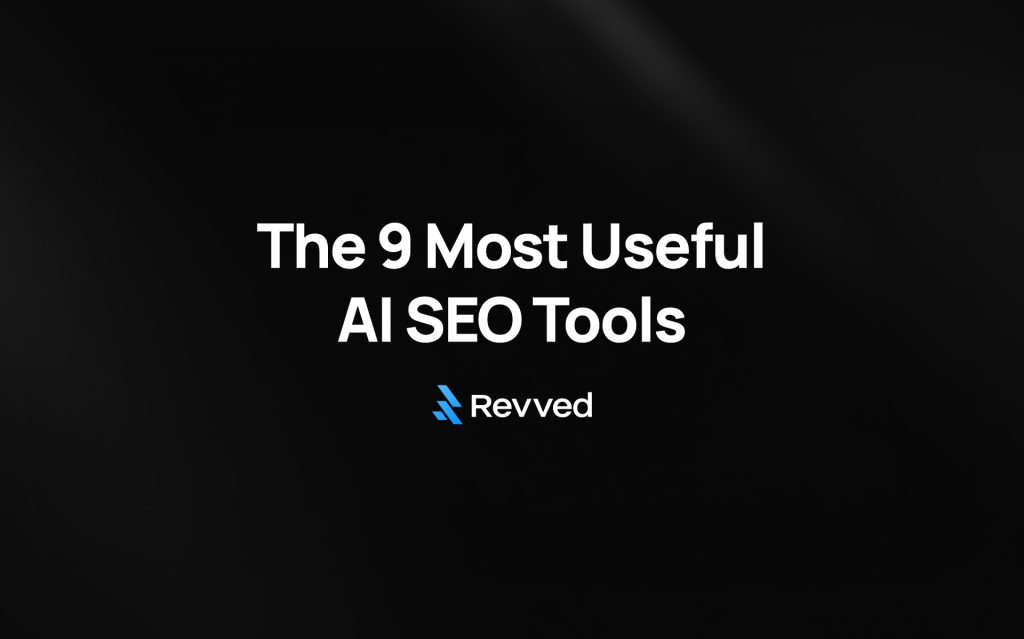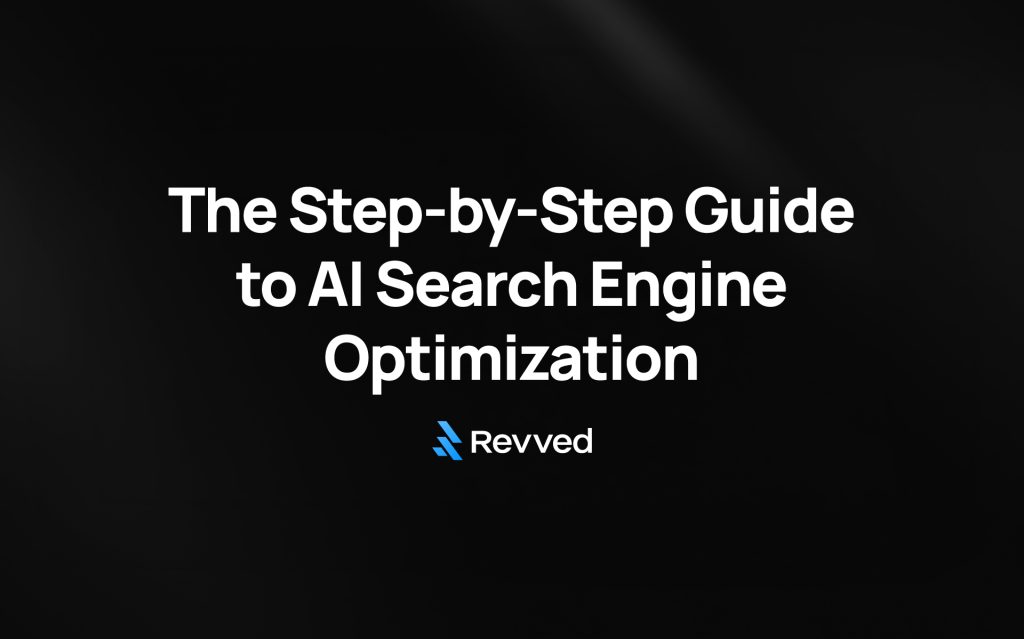Google processes 5.9 million searches every minute, which adds up to 8.5 billion searches daily. The SEO vs GEO discussion goes beyond these numbers and points to major shifts in search patterns. Traditional search queries typically contain 4-5 words, but ChatGPT prompts now average 23 words. Searches with 8+ words have seen a sevenfold increase.
My experience as Revved Digital’s owner has given me a unique perspective on this rise, mixing wonder with healthy doubt. Our industry loves creating new acronyms—SEO, GEO, AEO, LLMO. The real question is whether these represent genuine changes or just clever marketing. A newer study, published by Bain & Company shows that 80% of consumers depend on AI summaries for at least 40% of their searches. This has led to a 25% drop in traditional website clicks. The core principles remain largely unchanged despite flashy statistics and sales pitches.
Let’s cut through the noise and focus on what really matters in the SEO vs GEO landscape. We’ll get into how AI transforms search behavior while staying true to search engines’ fundamental principles. You might worry about Google’s AI Overviews reaching more than 1 billion users or wonder about hiring The Prompting Company for ChatGPT visibility. I’ll give you a clear picture of real changes versus simple rebranding efforts.
What is SEO vs GEO vs AEO (and why are we naming everything?)
The acronym soup surrounding search optimization gets more ridiculous each day. My years in this industry have given me an amusing view of marketers who rush to rebrand simple principles with flashy new acronyms. Let me help you navigate this alphabet jungle.
SEO: The original flavor
Search Engine Optimization (SEO) remains the backbone of digital marketing for decades. This process improves your website’s quality and traffic volume from search engines. Traditional SEO emphasizes unpaid “organic” results through keywords, technical structure, backlinks, and user experience. The search volume for SEO has grown in the last year. The fundamentals stay constant – you optimize content so search algorithms can find it.
GEO: Generative Experience Optimization (aka SEO with extra steps)
Generative Engine Optimization (GEO) repackages SEO for the AI era. Content optimization now targets visibility in AI-driven search engines like ChatGPT, Perplexity, Gemini, and Google’s AI Overviews. The focus moves from search result rankings to citations in AI-generated responses.
Notwithstanding that, GEO and SEO overlap significantly. Both want to boost content visibility, use strategic keywords, prioritize user experience, and emphasize quality content. The difference lies in GEO’s optimization for systems that combine information rather than just providing links. Think of it as SEO wearing a slightly fancier hat.
AEO and LLMO: Because acronyms make it sound smarter
We see Answer Engine Optimization (AEO) and Large Language Model Optimization (LLMO) gaining traction. AEO targets content features in direct answers like featured snippets and voice responses. LLMO makes content more digestible for large language models.
These variations play the same tune. The industry creates new terminology because “AI-SEO” sounds futuristic and commands higher prices. Agencies can repackage simple optimization techniques with buzzwords and charge premium rates for essentially identical services.
AI changes search behavior, no doubt. The core principles stay consistent beneath the hype. Your goal remains the same whether you call it SEO, GEO, AEO, or LLMO – making content visible, authoritative, and trustworthy for machines and humans alike.
How AI changed search (but not as much as the pitch decks claim)
AI has changed how we approach search, but marketing hype often exaggerates this transformation. Google’s Hummingbird update in 2013 created the foundations for semantic search that values context and intent more than exact keyword matches. Recent changes build on this development instead of creating a complete revolution.
From keywords to conversations
The change from keyword-focused queries to conversational search stands out as the most noticeable difference. Regular Google searches contain just 4.2 words on average, while AI prompts now stretch to 23 words. AI Overviews appeared in nearly half of all Google searches by May 2025. These AI-generated summaries give information right in search results, which often makes website visits unnecessary.
Click-through rates have dropped by up to 30%. The users who click through now participate more actively. They spend more time on site and show genuine interest in taking action. These visitors arrive with clear intentions rather than just browsing.
Multi-turn sessions and context retention
AI’s unique contribution to search lies in its ability to handle multi-turn conversations. AI systems maintain context throughout a session instead of starting fresh with each query. This creates natural dialog where questions build upon previous exchanges.
Memory-enhanced AI agents store and retrieve context-aware data across multiple sessions. They work with two types of memory:

Enter your website below to start your proposal request!
- Short-term memory (conversation history within a single session)
- Long-term memory (priorities and knowledge kept across multiple interactions)
Why AI still needs good content, not just buzzwords
AI hasn’t changed the core elements that matter in search. Modern search algorithms still check if content addresses topics accurately and completely. They look at originality, authority, and user participation—elements that traditional SEO has always valued.
Google’s guidelines support this view: quality content that shows E-E-A-T (expertise, experience, authoritativeness, and trustworthiness) remains the priority, whatever the creation method. Their AI systems reward original, helpful content while penalizing automated content designed only to manipulate rankings.
Quality content that meets user needs remains the best strategy. Technology may advance, but these basic principles stay constant.
SEO vs GEO: The real differences (spoiler: not many)
The SEO vs GEO battle isn’t much of a battle when you look beyond the marketing fluff. My work with clients at Revved Digital shows these differences are mostly cosmetic.
Same goals, different packaging
SEO and GEO serve a similar purpose – they make content visible to audiences. They both aim to get useful, credible content in front of the right people. The mechanics might vary, but the fundamentals overlap substantially. The main difference lies in how we measure success. SEO tracks rankings and traffic while GEO looks at citations in AI-driven outputs.
Passage-level vs page-level: a formatting tweak
Traditional SEO looked at entire pages, but GEO focuses on specific passages that answer user queries directly. This move from page-level to passage-level optimization isn’t revolutionary – it’s just a formatting adjustment. Both approaches benefit equally from clear headings, short paragraphs, and well-laid-out content.
Structured data: now with more schema!
Structured data matters more than ever for GEO, though it’s always been crucial for SEO. Nestlé’s data shows pages with rich results get an 82% higher click-through rate than those without. The schema markup helps both search engines and AI systems understand and surface your content better.
The Prompting Company and the rise of AI visibility consultants
A new cottage industry of “AI visibility consultants” has popped up. These specialists market optimization for AI platforms but offer services like traditional SEO consultants – just with fancier terms and bigger price tags.
Why we don’t charge extra for GEO, AEO, or LLMO (and anyone who does is ripping you off, most likely)…
Revved Digital takes a stand against companies that label GEO as a premium service with inflated rates. The “SEO vs GEO” difference exists because some companies want to charge more money.
The myth of ‘AI SEO pricing’
GEO consultants now charge 30-50% more than regular SEO services, which is nothing but clever marketing. These “specialists” offer similar services with fancy words. A closer look at their work reveals standard keyword strategies, content suggestions, and technical improvements – they just add “AI” to make it sound special.
The sort of thing I love: content quality and clarity
Beyond all the fancy terms, search engines and AI systems want the same thing – they need authoritative, well-laid-out content that answers user questions. They reward E-E-A-T principles—expertise, experience, authoritativeness, and trustworthiness. While methods change, these foundations stay the same.
How to future-proof your SEO without buying into hype
These timeless basics will help you succeed:
- Create helpful, expert-written content
- Use clear structure with descriptive headings
- Get authoritative backlinks from relevant sources
- Make technical improvements for better crawling
Excellence matters more than fancy terms. Quality content that serves your audience’s needs prepares you better for the future than paying extra for rebranded services.
Conclusion
You want to rank on Google’s first page or get cited by ChatGPT? It all comes down to creating content that both machines and humans find valuable.
AI has without doubt changed how people search. Their queries have evolved from four-word fragments to 23-word conversations. The core principles haven’t budged though. Search systems still reward expertise, authority, and trustworthiness, no matter how advanced they become.
Don’t buy into the marketing hype about needing a brand new strategy or budget. The biggest change isn’t about content optimization—it’s about delivery. Skip the panic about needing special “GEO services” and focus on creating useful content that both traditional search engines and AI systems can understand.
Quality beats terminology every time.
The industry loves creating new acronyms, but search and generative engines still crave the same thing: valuable, well-laid-out information.
Next time someone tries to sell you premium GEO services, ask them what they’re doing differently from traditional SEO. You’ll likely find it’s the same service with a fancier name and nowhere near the price tag.
Keep your strategy simple. Create expert content that helps your audience, structure it clearly, build authority through quality links, and optimize technical performance. These basics will serve you well whatever the next marketing buzzword might be.



